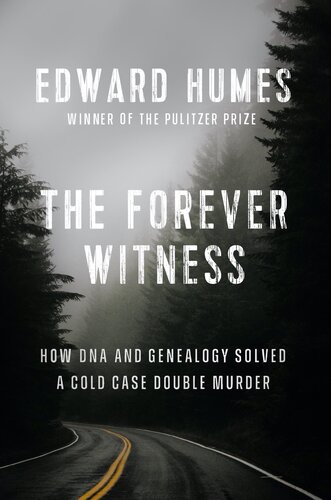

Most ebook files are in PDF format, so you can easily read them using various software such as Foxit Reader or directly on the Google Chrome browser.
Some ebook files are released by publishers in other formats such as .awz, .mobi, .epub, .fb2, etc. You may need to install specific software to read these formats on mobile/PC, such as Calibre.
Please read the tutorial at this link: https://ebookbell.com/faq
We offer FREE conversion to the popular formats you request; however, this may take some time. Therefore, right after payment, please email us, and we will try to provide the service as quickly as possible.
For some exceptional file formats or broken links (if any), please refrain from opening any disputes. Instead, email us first, and we will try to assist within a maximum of 6 hours.
EbookBell Team

4.1
100 reviewsIn November 1987, a young couple from the idyllic suburbs of Vancouver Island on an overnight trip to Seattle vanished without a trace. A week later, the bodies of Tanya Van Cuylenborg and her boyfriend Jay Cook were found in rural Washington. It was a brutal crime, and it was the perfect crime: With few clues and no witnesses in the vast and foreboding Olympic Peninsula, an international manhunt turned up empty, and the sensational case that shocked the Pacific Northwest gradually slipped from the headlines.
In deep-freeze, long-term storage, biological evidence from the crime sat waiting, as Detective Jim Scharf poured over old case files looking for clues his predecessors missed. Meanwhile, 1,200 miles away in California, CeCe Moore began her lifelong fascination with genetic genealogy, a powerful forensic tool that emerged not from the crime lab, but through the wildly popular home DNA ancestry tests purchased by more than 40 million Americans. When Scharf decided to send the cold case’s decades-old DNA to Parabon NanoLabs, he hoped he would finally bring closure to the Van Cuylenborg and Cook families. He didn’t know that he and Moore would make history.
Genetic genealogy, long the province of family tree hobbyists and adoptees seeking their birth families, has made headlines as a cold case solution machine, capable of exposing the darkest secrets of seemingly upstanding citizens. In the hands of a tenacious detective like Scharf, genetic genealogy has solved one baffling killing after another. But as this crime-fighting technique spreads, its sheer power has sparked a national debate: Can we use DNA to catch the murderers among us, yet still protect our last shred of privacy in the digital age—the right to the very blueprint of who we are?